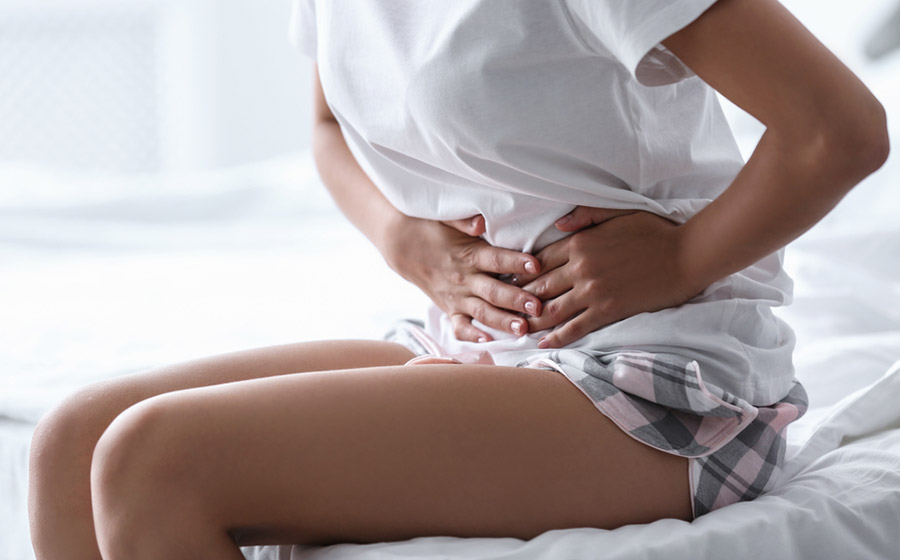Whenever I was on my menstrual flow, my entire household would know no peace during my adolescent years. I felt ashamed of my situation, but I couldn’t help it. I would bend for the first two days, as it was difficult standing upright. Other times, I would have a running stomach or throw up to feel relieved.
During these days, I missed school. My heart would skip whenever it was a few days to my next flow. At a point, I wished I didn’t see my period at all.
Like myself, cramps affect many people before and during their period. While some people only suffer mild cramps, others are not so fortunate. In some cases, the discomfort and pain from period cramps can be severe and can drastically affect the day’s activities.
These seven remedies could relieve your discomfort and help you quickly get back to your busy life as if nothing happened.
1. Use a heat patch
Placing a heated cloth or wrap on your abdomen can help relax the muscles of your uterus. It is the contraction of the muscles of the uterus that cause period cramps. Heat can also enhance circulation in your abdomen, which can lessen the pain.
Electric heating pads and hot water bottles aren’t as convenient to use as patches, but they’re reasonable choices if you stay more often at home and not move around much.
2. Take supplements
Various studies have shown that several kinds of dietary supplements may aid in decreasing period cramps, although it is not completely known how it works.
A 2020 analysis of nine studies on the potency of cinnamon, fennel, and ginger established that all were attributed to reducing period pain. Cinnamon was also revealed to lessen the duration of pain. Other supplements that have been associated with diminished period cramps include calcium, vitamins B6, B1, E, and D, vitamin B12 and fish oil.
3. Stay away from caffeine and salty foods
Some foods are preferable to others when it comes to relieving or aggravating period pain. For example, eating foods such as berries, fatty fish, avocado, and virgin olive oil that decrease inflammation may be helpful.
It’s also advisable to cut down on foods that can result in water retention, bloating, and discomfort, like salty foods, caffeine, alcohol, and fatty foods.
4. Change your sleeping position
Anecdotal reports noted that the fetal position is the recommended sleeping position to alleviate menstrual cramps. This position doesn’t exert weight on your abdomen or lower back, where the pain is mostly felt. Although there is not so much research to prove this, giving this a try would do you no harm.
5. Exercise
According to a 2018 research, low-to-medium intensity aerobic exercise is beneficial to lower pain caused by menstrual cramps.
In this research, scientists established that women who engaged in 30 minutes of aerobic exercise 3 days a week for eight weeks affirmed that there were significant reductions in period cramps.
To add aerobic exercises into your plan, you could consider biking to work, taking a brisk walk, dancing to your best tunes, or engaging in a sport you enjoy.
6. Practice Yoga
Like other aerobic exercises, yoga helps relax the uterus muscles and thus reduce pain. A study carried out on 50 women who practised yoga for 12 weeks confirmed this. If you decide to do yoga, opt for a class with both a physical and relaxation component as this combination is best and more beneficial to reducing menstrual cramps.
7. Take a pain-relieving drug
Over-the-counter (OTC) pain killers can help curb period cramps and other period-related distress, such as headaches. According to the College of Obstetrics and Gynecologists, nonsteroidal anti-inflammatory drugs (NSAIDs) are the most effective. Not only does it alleviate the pain, but they also decrease the number of prostaglandins (the hormone that causes contraction of the uterus).
OTC NSAIDs include ibuprofen (Advil, Motrin), naproxen (Aleve), and aspirin (Bufferin). Taking these medications when the signs of cramps are first experienced makes it more effective. Ensure to take them only as prescribed and talk with your doctor first if you have a history of heart, liver, or kidney problems or if you have asthma, ulcers, or bleeding disorders.
Although menstrual cramps are quite common, it becomes a matter of concern when it interferes with our daily lives. The tips highlighted above can help relieve the pain and discomfort caused.
However, if the pain persists after some days and you are unable to properly function, you should consult your doctor.





Comments are closed.